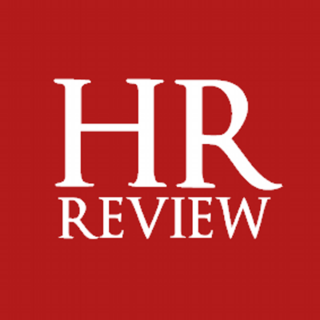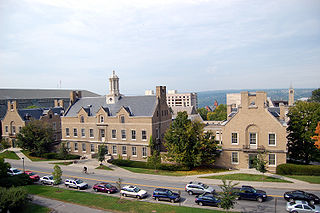This page is based on this
Wikipedia article Text is available under the
CC BY-SA 4.0 license; additional terms may apply.
Images, videos and audio are available under their respective licenses.
Collective bargaining is a process of negotiation between employers and a group of employees aimed at agreements to regulate working salaries, working conditions, benefits, and other aspects of workers' compensation and rights for workers. The interests of the employees are commonly presented by representatives of a trade union to which the employees belong. The collective agreements reached by these negotiations usually set out wage scales, working hours, training, health and safety, overtime, grievance mechanisms, and rights to participate in workplace or company affairs.
In United States labor law, a jurisdictional strike is a concerted refusal to work undertaken by a union to assert its members' right to particular job assignments and to protest the assignment of disputed work to members of another union or to unorganized workers. The Taft-Hartley amendments to the National Labor Relations Act empowered the National Labor Relations Board to resolve such jurisdictional disputes and authorized the General Counsel of the NLRB to seek an injunction barring such strikes.
Human resource management is the strategic approach to the effective management of people in an organization, so that they help the business to gain a competitive advantage. It is designed to maximize employee performance in service of an employer's strategic objectives. HR is primarily concerned with the management of people within organizations, focusing on policies and on systems. HR departments are responsible for overseeing employee-benefits design, employee recruitment, training and development, performance appraisal, and Reward management. HR also concerns itself with organizational change and industrial relations, that is, the balancing of organizational practices with requirements arising from collective bargaining and from governmental laws.
Kate Bronfenbrenner is the Director of Labor Education Research at the Cornell University School of Industrial and Labor Relations. She is a leading authority on successful strategies in labor union organizing, and on the effects of outsourcing and offshoring on workers and worker rights.
Harry Charles Katz is an American university professor and academic administrator. He is the interim Provost of Cornell University and Jack Sheinkman Professor of Collective Bargaining at the Cornell University School of Industrial and Labor Relations.
The Martin P. Catherwood Library, commonly known as the Catherwood Library or simply the ILR Library, serves the New York State School of Industrial and Labor Relations at Cornell University. One of over a dozen libraries within the Cornell University Library system, the Catherwood Library is considered the most comprehensive resource of its kind in North America. The Catherwood Library's stated mission is to serve as a comprehensive information center in support of the research, instruction, and service commitments of the Industrial and Labor Relations School and Cornell community. The Catherwood Library is an official Depository Library of the International Labour Organization (ILO), one of only two in the country to be so designated; the other is the Library of Congress.
Richard Hurd is a professor of labor relations emeritus and former director of Labor Studies at the Cornell University School of Industrial and Labor Relations.
Paul F. Clark is a professor of labor studies at Pennsylvania State University. He is head of the Department of Labor Studies and Employment Relations. He also holds a professorship in the Department of Health Policy and Administration.
A collective agreement, collective labour agreement (CLA) or collective bargaining agreement (CBA) is a written contract negotiated through collective bargaining for employees by one or more trade unions with the management of a company that regulates the terms and conditions of employees at work. This includes regulating the wages, benefits, and duties of the employees and the duties and responsibilities of the employer or employers and often includes rules for a dispute resolution process.
Anne Evans Estabrook is an American real estate developer who was the frontrunner in the Republican primary for the 2008 United States Senate race in New Jersey before suffering a mini-stroke and withdrawing from the race.

Seth D. Harris was the 11th United States Deputy Secretary of Labor, and served for six months as the Acting U.S. Secretary of Labor and a member of President Barack Obama's Cabinet. Nominated by President Obama in February 2009, Harris was unanimously confirmed by the U.S. Senate in May 2009, and became acting Secretary of Labor following the resignation of Hilda Solis in January 2013. Harris was also a member of the Overseas Private Investment Corporation's Board of Directors. Harris stepped down from his post on January 16, 2014. Since leaving the Obama Administration, Harris has been a Visiting Professor at the Cornell Institute for Public Affairs and a Distinguished Scholar at Cornell University's School of Industrial & Labor Relations, and a lawyer in Washington, D.C. Harris also serves on boards of directors and advises early stage companies.
James A. Gross is an American educator and historian who teaches United States labor law and labor history at the Cornell University School of Industrial and Labor Relations. He is the author of a highly regarded three-volume history of the National Labor Relations Board (NLRB) and is considered the leading historian of the NLRB.

The Cornell HR Review (CHRR) was an online journal of human resource management articles published independently by graduate students at Cornell University. The publication ran from 2009 to 2019.

Ronald Gordon Ehrenberg is an American economist. He has primarily worked in the field of labor economics including the economics of higher education. Currently, he is Irving M. Ives Professor of Industrial and Labor Relations and Economics at Cornell University. He is also the founder-director of the Cornell Higher Education Research Institute (CHERI).

Francine Dee Blau is an American economist and professor of economics as well as Industrial and Labor Relations at Cornell University. In 2010, Blau was the first woman to receive the IZA Prize in Labor Economics for her "seminal contributions to the economic analysis of labor market inequality." She was awarded the 2017 Jacob Mincer Award by the Society of Labor Economists in recognition of lifetime of contributions to the field of labor economics.
Louis Roland Hyman is an American writer and economic historian. He is an assistant professor at Cornell University's School of Industrial & Labor Relations.
Lawrence M. Kahn is the Braunstein Family Professor and Professor of Economics at the Cornell University School of Industrial and Labor Relations.




